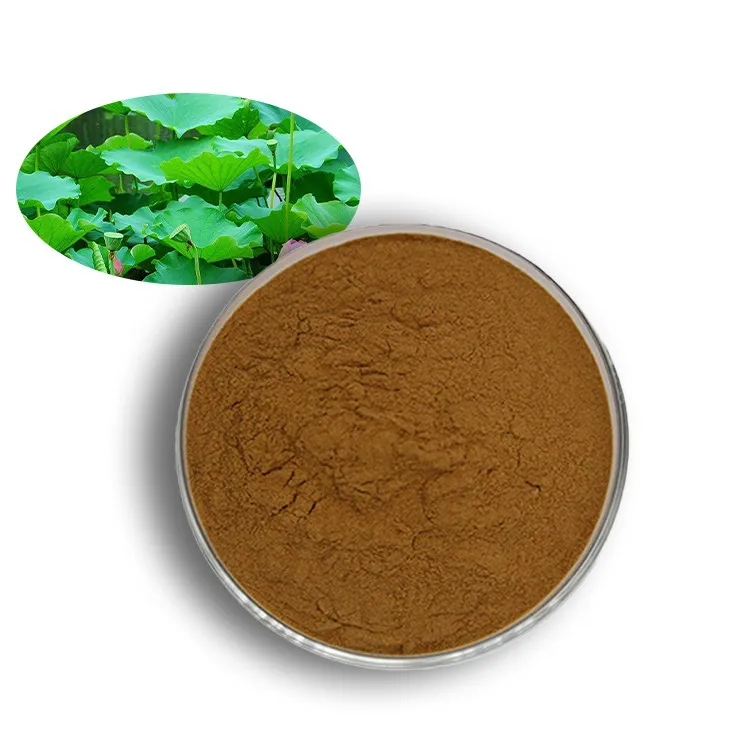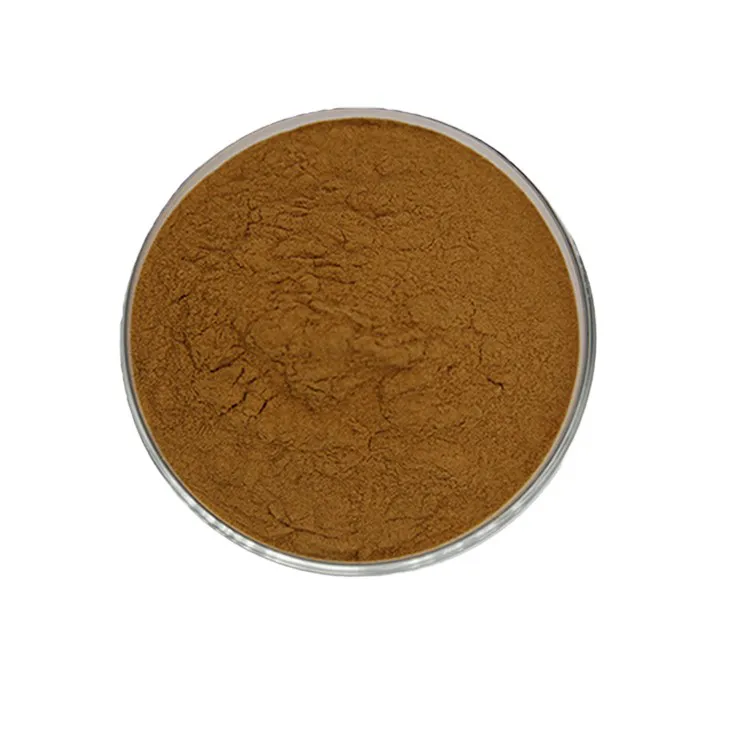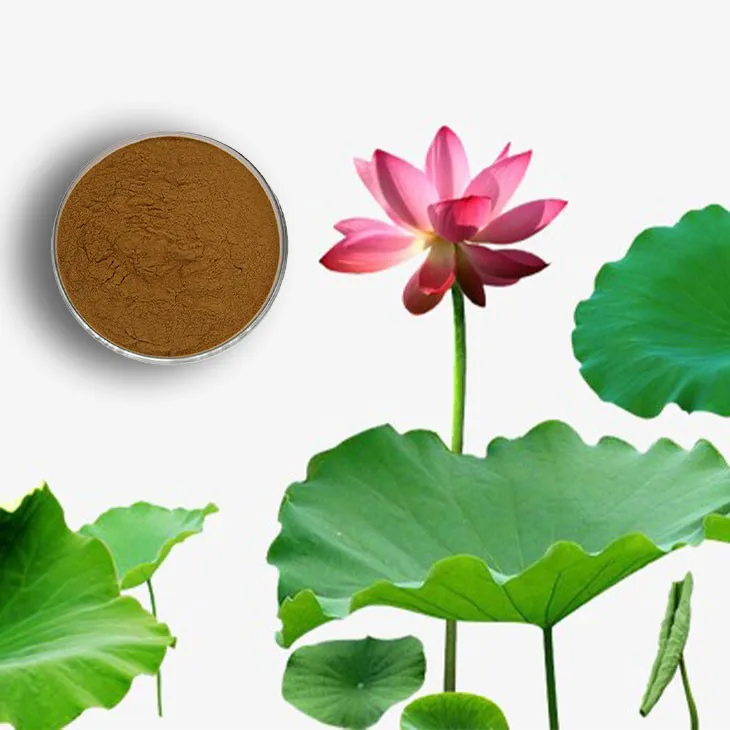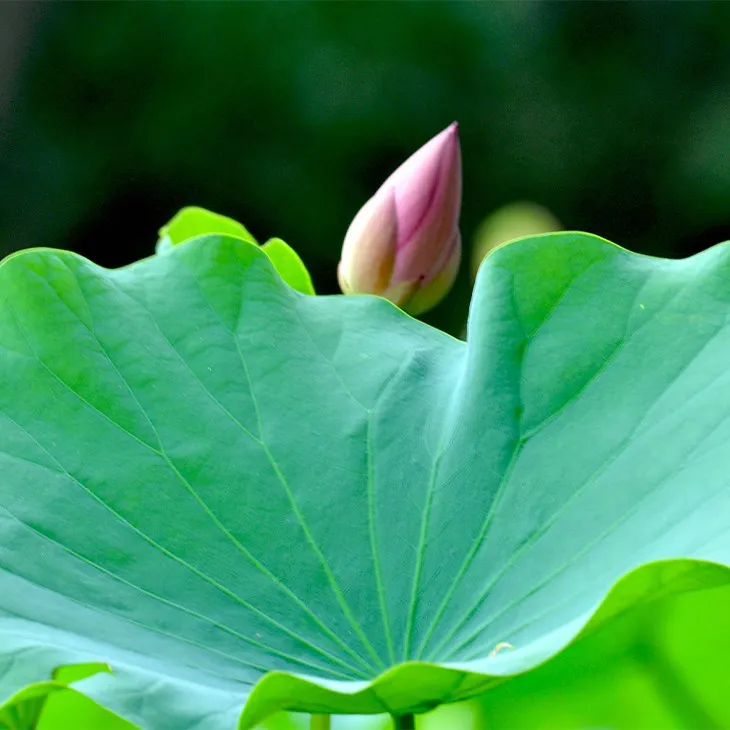- 0086-571-85302990
- sales@greenskybio.com
Lotus Leaf Extract: What Are Its Benefits and How to Take It?
2024-11-13

1. Introduction to Lotus leaf extract
The Lotus leaf extract is a natural product that has been used in traditional medicine for centuries. It is derived from the leaves of the lotus plant, which is known for its beauty and significance in various cultures. The extract contains a variety of bioactive compounds that are responsible for its potential health benefits.

2. Health Benefits of Lotus leaf extract
2.1 Regulation of Blood Sugar Levels
One of the most notable benefits of lotus leaf extract is its potential role in regulating blood sugar levels. For people with diabetes or those at risk of developing diabetes, maintaining stable blood sugar is crucial. Studies have suggested that certain compounds in the lotus leaf extract may help improve insulin sensitivity. Insulin is a hormone that is responsible for allowing cells to take up glucose from the bloodstream. When insulin sensitivity is improved, the body can more effectively use insulin to regulate blood sugar levels.
Some research has also indicated that lotus leaf extract may inhibit the activity of certain enzymes involved in carbohydrate digestion. By doing so, it can slow down the breakdown of carbohydrates into glucose, thereby preventing rapid spikes in blood sugar levels after a meal. This can be particularly beneficial for individuals who consume a diet high in carbohydrates.
2.2 Skin Health Benefits
Lotus leaf extract may also have a positive impact on skin health. It is rich in antioxidants, such as flavonoids and phenolic acids. These antioxidants can help protect the skin from damage caused by free radicals. Free radicals are unstable molecules that are generated as a result of environmental factors like UV radiation, pollution, and cigarette smoke. They can cause oxidative stress in the skin, which can lead to premature aging, wrinkles, and dull skin.
The extract may also have anti - inflammatory properties. Inflammation in the skin can be caused by a variety of factors, including acne, eczema, and psoriasis. By reducing inflammation, lotus leaf extract may help soothe irritated skin and improve the overall appearance of the skin. Additionally, it may promote collagen production. Collagen is a protein that is essential for maintaining the elasticity and firmness of the skin. As we age, collagen production naturally declines, leading to sagging skin. Lotus leaf extract may help stimulate collagen synthesis, thereby keeping the skin looking youthful and healthy.
2.3 Potential for Weight Management
There is some evidence to suggest that lotus leaf extract may be beneficial for weight management. It is believed that the extract may affect lipid metabolism in the body. Some studies have shown that it can increase the breakdown of fat cells and reduce the absorption of dietary fat. This can potentially lead to a decrease in body fat percentage over time.
Furthermore, as mentioned earlier, its role in regulating blood sugar levels can also be related to weight management. Stable blood sugar levels can help prevent cravings for sugary and high - calorie foods, which are often associated with overeating and weight gain. By reducing these cravings, lotus leaf extract may assist in maintaining a healthy diet and, ultimately, a healthy weight.
2.4 Antioxidant and Anti - Inflammatory Effects in the Body
Beyond its effects on the skin, the antioxidant and anti - inflammatory properties of lotus leaf extract can have a broader impact on the body. Antioxidants help neutralize free radicals throughout the body, protecting cells from oxidative damage. This can reduce the risk of various chronic diseases, such as heart disease, cancer, and neurodegenerative diseases.
The anti - inflammatory effects can also be beneficial for conditions such as arthritis, where inflammation in the joints can cause pain and reduced mobility. By reducing inflammation at the cellular level, lotus leaf extract may help alleviate some of the symptoms associated with these inflammatory conditions.

3. How to Take Lotus Leaf Extract
3.1 Powder Form
The powder form of lotus leaf extract is a popular way to consume it. One option is to add it to smoothies. You can blend it with fruits like bananas, berries, and mangoes, along with other ingredients such as yogurt or almond milk. This not only masks the taste but also provides a convenient and nutritious way to incorporate the extract into your diet.
Another method is to use the powder to make a decoction. To do this, you can take about 1 - 2 grams of the lotus leaf extract powder and add it to a cup of boiling water. Let it simmer for about 10 - 15 minutes, then strain the liquid and drink it. This decoction can be consumed once or twice a day, depending on your needs.
3.2 Capsule Form
Capsules are also available for those who prefer a more convenient option. The recommended dosage in capsule form may vary depending on the brand and the concentration of the extract. Generally, it is advisable to follow the instructions on the product label. Typically, a daily dosage may range from 500 mg to 1500 mg, but it is always best to consult a healthcare professional before starting any new supplement regimen.
3.3 Precautions and Considerations
While lotus leaf extract offers potential health benefits, it is important to take certain precautions. First, pregnant and breastfeeding women should avoid using lotus leaf extract as there is not enough research to determine its safety during pregnancy and lactation.
People with certain medical conditions, such as kidney or liver problems, should also consult their doctor before taking lotus leaf extract. Since the extract may interact with medications, it is crucial to inform your healthcare provider if you are taking any prescription or over - the - counter drugs.
Finally, some people may experience side effects such as digestive discomfort, nausea, or allergic reactions when taking lotus leaf extract. If you notice any adverse effects after starting to use the extract, discontinue use immediately and seek medical advice.

4. Conclusion
Lotus leaf extract is a natural product with a range of potential health benefits, including blood sugar regulation, skin health improvement, weight management, and antioxidant and anti - inflammatory effects. However, it is important to use it safely and under the guidance of a healthcare professional. Whether you choose to take it in powder form, capsule form, or through other means, understanding its proper dosage and potential side effects is key to unlocking the benefits of this natural wonder.

FAQ:
What are the main benefits of lotus leaf extract?
Lotus leaf extract has several benefits. It can help in regulating blood sugar levels, which is especially useful for people with diabetes concerns. It also may have a positive influence on skin health.
Can lotus leaf extract be used for weight loss?
While there are some claims that lotus leaf extract may aid in weight loss, more research is needed. Its role in regulating blood sugar could potentially have an indirect impact on weight management, but currently, there is no conclusive evidence directly linking it to significant weight loss.
How should lotus leaf extract powder be stored?
Lotus leaf extract powder should be stored in a cool, dry place, away from direct sunlight. It is best to keep it in an airtight container to prevent moisture absorption and spoilage.
Are there any side effects of taking lotus leaf extract?
Some people may experience mild side effects such as digestive discomfort when taking lotus leaf extract. However, these side effects are not common for everyone. Pregnant or breastfeeding women should avoid using it without consulting a doctor, as its safety in these situations has not been fully established.
Can lotus leaf extract be used topically for skin?
There is a possibility that lotus leaf extract could be used topically for skin health, but currently, most of the research focuses on its internal consumption. More studies are required to determine its effectiveness and safety when used directly on the skin.
Related literature
- The Health Benefits of Lotus Leaf Extract: A Comprehensive Review"
- "Lotus Leaf Extract: Pharmacological Properties and Potential Applications"
- "Dosage and Administration of Lotus Leaf Extract: Current Evidence"
- ▶ Hesperidin
- ▶ citrus bioflavonoids
- ▶ plant extract
- ▶ lycopene
- ▶ Diosmin
- ▶ Grape seed extract
- ▶ Sea buckthorn Juice Powder
- ▶ Beetroot powder
- ▶ Hops Extract
- ▶ Artichoke Extract
- ▶ Reishi mushroom extract
- ▶ Astaxanthin
- ▶ Green Tea Extract
- ▶ Curcumin Extract
- ▶ Horse Chestnut Extract
- ▶ Other Problems
- ▶ Boswellia Serrata Extract
- ▶ Resveratrol Extract
- ▶ Marigold Extract
- ▶ Grape Leaf Extract
- ▶ blog3
- ▶ blog4
- ▶ blog5
-
Organic Tongkat Ali extract powder factory.
2024-11-13
-
How to make powder with ashwagandha extract.
2024-11-13
-
Rosehip extract manufacturers from China.
2024-11-13
-
The best cat's claw extract in nature.
2024-11-13
-
Chinese Dandelion Leaf Extract Suppliers.
2024-11-13
-
Lycopene
2024-11-13
-
Oat Straw Extract Powder
2024-11-13
-
Coconut Water Powder
2024-11-13
-
Curcuma Longa Extract/Turmeric extract
2024-11-13
-
Troxerutin
2024-11-13
-
Red Vine Extract
2024-11-13
-
Acai Berry Extract
2024-11-13
-
Horse Chestnut Extract
2024-11-13
-
Peppermint Extract Powder
2024-11-13
-
Maitake Mushroom Extract
2024-11-13





















